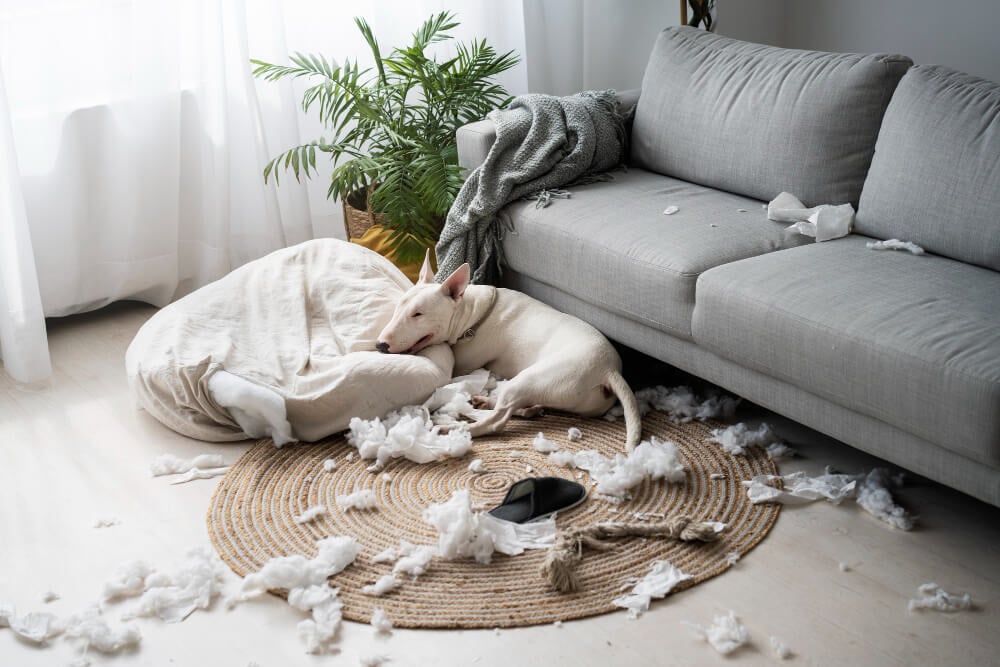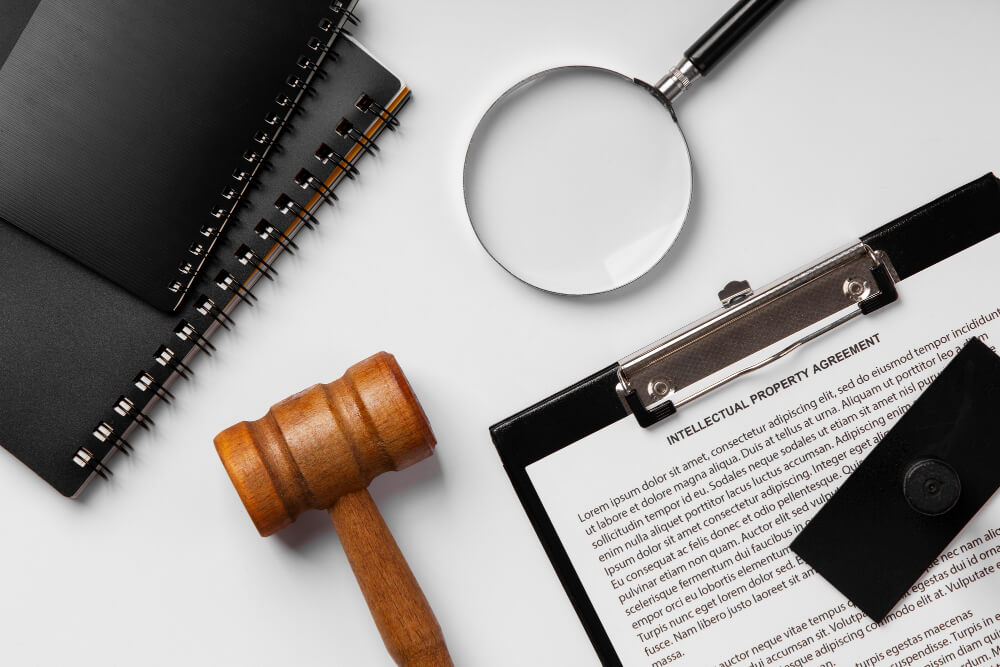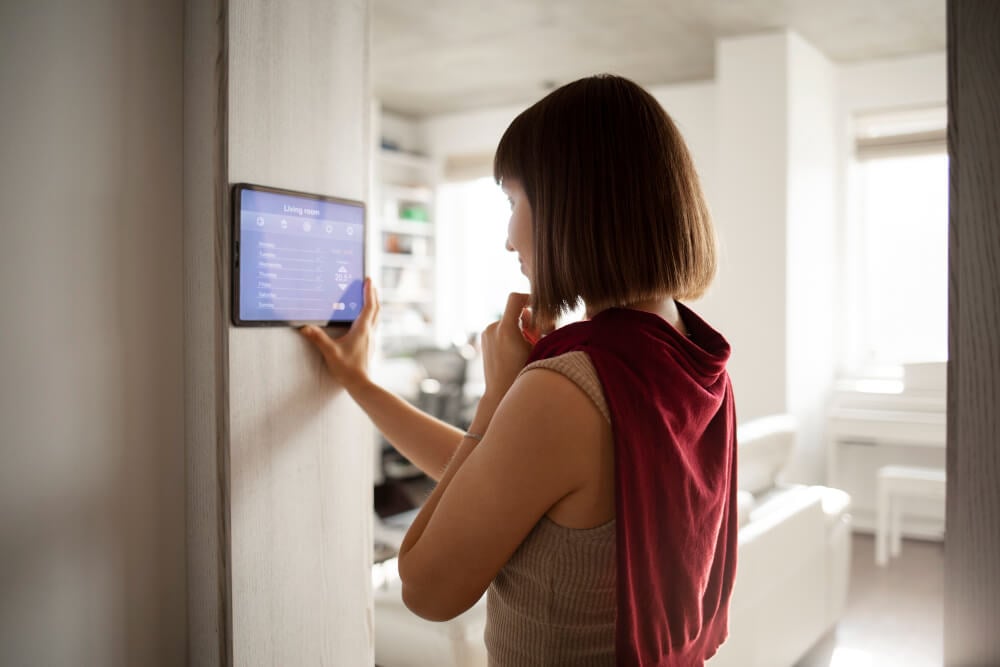Damage caused by guests is one of the top concerns for vacation rental hosts. On Reddit and other hosting forums, it’s a frequent topic that often sparks frustration and uncertainty. So, how exactly does the Airbnb Damage Policy work? Can you file a damage claim that gets approved? And more importantly, how can you protect your property and minimize risks before damage even happens?
In this article, we’ll break down what to do when guests damage your Airbnb, how to handle claims, and steps to prevent future issues.
To make daily management easier, tools like Hostex can automate guest messaging, calendar syncing, and cleaning coordination. This AI-powered PMS helps you handle 70% of routine tasks, starting at just $4.90/month.

What to Do When Guests Damage Your Airbnb?
As a professional short-term rental host, it’s essential to remain calm when dealing with guest damage. Taking the right steps can help you effectively address the issue.
1. Assess the Damage Immediately
After the guest checks out, inspect your property as soon as possible. If you manage your property remotely, ask your cleaning staff to check for damages during their cleaning tasks.
- Check all rooms: Ensure that furniture, appliances, and amenities in every room are intact and nothing is missing.
- Focus on vulnerable areas: Pay special attention to mirrors, light fixtures, carpets, walls, sofas, bedding, and dishes, as these items are often more susceptible to damage.
2. Document with Photos
Once you identify any damages or missing items, it’s crucial to gather evidence. This documentation will be key in any Airbnb damage claim.
- Take photos or videos: Use your phone to capture images of the damaged areas. Try to take multiple angles to provide clear and detailed evidence.
- Original condition evidence: Locate photos of the damaged items or facilities in their original condition, ideally taken before the guest’s stay. This emphasizes the importance of taking pictures after each cleaning session.
3. Communicate with the Guest Promptly
After confirming the damage, reach out to the guest to discuss the situation.
- Maintain a friendly tone: Even if you feel upset, try to remain calm. Approach the guest sincerely and politely. Since they may deny responsibility, being overly aggressive could jeopardize the conversation.
- Ask for specifics: Share your photographic evidence and politely inquire about what happened and whether they are willing to cover the damages. If they deny responsibility, kindly ask them to provide their evidence.
- Keep communication records: Always use the Airbnb platform for communication, as this helps Airbnb track the situation. If you use texts or emails, save all correspondence with the guest.
4. Evaluate Repair Costs
After collecting all evidence, obtain estimates for repairs or replacements. This will give you a clear understanding of costs and assist in negotiations or claims with the guest.
- Consult professionals: If the damage is significant, it’s wise to have a professional assess the situation to ensure accurate repair costs. For difficult stains, consider hiring a professional cleaning team for a reasonable quote.
- Provide receipts: Keep receipts for any items purchased and invoices related to repairs. If the guest disputes the compensation amount, this documentation can serve as evidence.
5. File a Claim
You have several options for recovering property losses, but let’s lay our cards on the table—you should be prepared for a potentially challenging Airbnb damage claim process.
Next, we will discuss each option in detail.

How Can Hosts Initiate an Airbnb Damage Claim?
Airbnb hosts have the right to stand up for their interests. This is not only to reduce financial losses but also to deter guests with bad behavior.
1. Airbnb Security Deposit
A security deposit is one of the most effective ways to protect your property. It encourages responsible guest behavior and gives you a financial safety net in case of damage or loss.
- For Regular Hosts
Airbnb does not allow regular hosts to collect a deposit directly. Instead, Airbnb notifies guests at booking that they may be charged after checkout if damages are reported. In this case, any claim must go through Airbnb’s Resolution Center.
- For Professional Hosts Using PMS
Airbnb only allows professional hosts using API-connected software to set up a security deposit.
With vacation rental software like Hostex, you can enable security deposits for Airbnb bookings. Guests are clearly informed during checkout, and the deposit is held securely until the stay ends.
If no damage occurs, the full amount is refunded automatically. If something goes wrong, you can deduct the appropriate cost directly—no need to open a lengthy dispute with Airbnb.

2. Submitting a Claim Through the Airbnb Resolution Center
You must ensure your compensation request complies with the Airbnb Host Damage Protection Terms, and then ask the Airbnb support team to get involved; they will assist you in handling your Airbnb damage claim.
- You need to submit your claim within 14 days of the damage occurring and before the next guest checks in. Late submissions or submissions made after the next guest has checked in will render the claim invalid.
- Guests have 72 hours to respond to your claim, during which they can agree to pay or refuse payment.
- If the guest accepts the compensation proposal, Airbnb will deduct the appropriate amount from the guest’s linked bank card on the platform and will transfer the funds to your account within 5-7 business days.
Steps to Submit an Airbnb Damage Claim:
- Log in to airbnb.com.
- Go to the “Resolution Center.”
- Select the booking for which you want to request a deposit.
- Under “Select a reason,” click “Request compensation for damages.”
- Click “Continue.” You will be taken to the next page where you can enter details about the damage claim and related costs.
Important Note: You can easily find tons of posts about “how to refuse to pay for damages that Airbnb is asking me to pay?” Guests know that by unlinking their bank card from Airbnb, they can effectively dodge the bullet and slip out of any responsibility.
3. Airbnb Host Damage Protection
If Airbnb determines your claim is reasonable, but the guest refuses to pay for damages or just ignores you, what should you do?
You must request Airbnb’s intervention again.
Under AirCover, Host damage protection offers up to $3 million in reimbursement. If a guest damages your property or belongings and refuses to compensate you, you can receive reimbursement from Airbnb.
However, the reimbursement process with Airbnb can be complex. Moreover, there is no guarantee that your claim will be successful.
4. Sue the Tenant
Technically, Airbnb hosts can take their tenants to court. But I believe no one wants things to come to this point.
If the guests do not respond to you or get confrontational, take it to the small claims court. But they may still not pay you after you’ve got a judgment.
If they do not pay you what they owe you, give the case to a bailiff. The court has collection agencies working with it and may collect on your behalf on a contingency basis.

How to Handle Guest Damage on Other OTA Channels?
What should you do if you encounter guest damage on other short-term rental platforms? Some platforms may not have protection mechanisms like the Airbnb Damage Policy. In this case, hosts need to take additional measures to protect their rights.
1. Understand the Platform’s Policies
It is crucial to know the guarantee policies of each platform if you are listing on multiple booking sites.
- Booking.com: Typically does not offer protections similar to Airbnb. Hosts must bear the risk of loss. Additionally, since Booking.com has a large user base, guest quality can vary significantly. Therefore, hosts should collect a security deposit for protection.
- Expedia: Does not provide any guarantees. Expedia encourages hosts to purchase personal insurance to protect against property loss or liability claims.
- Vrbo: Offers a host protection plan, but the coverage and reimbursement limits may vary. It is recommended to carefully read their terms.
2. Consider Commercial Insurance
If you frequently rent out your property, obtaining commercial insurance can provide additional protection. In fact, you should view insurance as an absolute necessity rather than an option. Insurance can fill the gaps where Airbnb’s host protection plan and liability coverage may not provide adequate protection.
- Choose the Right Insurance Product
Look for insurance products specifically designed for short-term rental hosts. These products typically cover accidental damage, theft, and other risks.
- Consult a Professional Insurance Agent
Learn about different insurance products offered by various companies. Seek advice from professionals to ensure you select the protection plan that best suits your needs.
3. Establish Your Own Protection Mechanism
To better protect your property, hosts can consider the following measures:
- Sign a Rental Agreement
It is advisable to clearly communicate the house rules, liability clauses, and compensation policies to guests before their arrival. If possible, having guests sign an agreement can be even more beneficial. This ensures that they understand their responsibilities regarding any damages that may occur during their stay.
In the event of an accident, having a signed agreement provides you with additional evidence to support your claim, protecting your rights as a host and reinforcing the legitimacy of your compensation request.
- Collect a Security Deposit
A security deposit is your best tool for protection, allowing you to immediately deduct costs in the event of damage.
When guests make a reservation, be sure to inform them that a security deposit will be collected. Additionally, only provide the door lock code and check-in information after the deposit has been paid.
The deposit amount should be reasonably set based on the property’s value and potential risks. It’s also important to clearly explain the terms of the deposit usage to guests, ensuring they understand the conditions before their stay.

How to Take Preventive Measures to Reduce Damage Risks?
“An ounce of prevention is worth a pound of cure.”
Taking preventive measures in advance is an effective strategy to minimize the risk of damage caused by guests.
1. Take Your Property Seriously
The design and layout of your property directly affect guest experience and behavior:
- Simplify Furniture Configuration:
- When renovating and selecting furniture, consider using durable and easy-to-clean materials.
- Avoid excessive decorations, especially valuable art pieces, to reduce the risk of loss and damage.
- Choose functional and low-maintenance furniture to make it more convenient for guests.
- Regular Inspections and Maintenance:
- Schedule regular inspections to ensure all facilities are functioning properly.
- Promptly address any potential issues to prevent small problems from escalating into larger damages.
- Conduct deep cleaning regularly to maintain a tidy environment, which can enhance guests’ sense of responsibility.
- Update and Record Property Condition:
- Keep a detailed inventory of all furniture, appliances, and decorations. This will serve as a strong basis for compensation amounts.
- Take photos of the property and update them regularly to visually track wear and tear.
- After cleaning tasks, take photos to document the property’s condition before guests arrive.
2. Clear Check-In Rules
Establishing good communication with guests is essential. You need to clearly outline the check-in rules to help guests understand their responsibilities, which can effectively enhance their sense of accountability.
- Pre-Check-In Communication: Before guests arrive, send reminders via email or messages about the property’s usage rules. Emphasize the importance of maintaining property.
- Interaction During Their Stay: Maintain appropriate contact during the guest’s stay. Inquire about their experience and encourage honest feedback on any issues. This not only enhances guests’ sense of belonging but also helps identify potential problems early.
We have previously written articles discussing how to optimize the check-in process and how to set Airbnb house rules.
3. Set a Reasonable Security Deposit Policy
A security deposit policy can effectively regulate guest behavior:
- Set a Reasonable Deposit Amount
Determine a reasonable deposit based on the property’s value and potential risks. For high-value properties, consider increasing the deposit amount to ensure timely compensation in case of damage.
- Clarify Deposit Terms
Clearly outline the terms for using the deposit on the booking page and in the welcome manual. Ensure guests understand under what circumstances the deposit may be deducted.
4. Use Monitoring Devices
Where legally permitted, appropriate use of monitoring devices can help protect your property:
- Install Security Cameras
Place security cameras in common areas to ensure the safety of those spaces. However, be sure to follow privacy regulations and avoid installing cameras in private areas.
- Utilize Smart Home Devices
Implement smart locks and temperature control devices. These can monitor the property’s security status in real time and automatically lock the doors after guests check out, providing additional security for hosts.

Final Thoughts
No matter how careful you are, guest damage can still happen. That’s why understanding the OTA Damage Policy and your options as a host is essential. Whether you’re filing a damage claim through Airbnb or handling issues on other booking platforms, quick action and proper documentation can make all the difference.
More importantly, prevention is always better than a cure. With the right house rules, guest screening, security deposit, and automated tools, you can reduce risks and protect your property with less stress.
In short, being prepared is key. Equip yourself with knowledge, set clear expectations, and use reliable management systems to stay ahead of potential issues. That way, when something does go wrong, you’ll be ready, not surprised.



